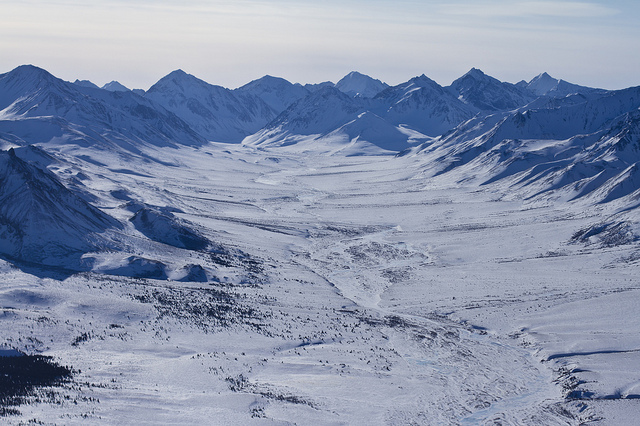
NPS Protects Old Denali From Snowmachines…Permanently
In mid-June, the National Park Service issued its final regulatory package for Denali National Park. After an extended comment period and extensive review within the Department of Interior, the Park Service has formally closed all of Old Denali (the former Mt. McKinley National Park) to the use of snowmachines for traditional activities.
The Park Service regulation was needed to address the Alaska federal court’s ruling in last year’s lawsuit over snowmachines in the Old Park. In February 1999, the Park Service issued a temporary rule prohibiting snowmachining for traditional activities in the majority of the Old Park, while opening two corridors of the Old Park to snowmachines. The Alaska State Snowmobile Association challenged the closure, and, on behalf of a broad coalition of conservation groups, we intervened in defense of the closure while at the same time challenging the opening of the corridors. The federal court rejected the temporary rule because in its temporary regulation the Park Service failed to define the statutory term “traditional activities.”
The term “traditional activities” comes from Section 1110(a) of the Alaska National Interest Lands Conservation Act (ANILCA), which directs the Secretary of Interior to allow “special access” via snowmachine, motorboat, and airplane “for traditional activities. . . and for travel to and from villages and homesites.” The NPS found that there are no villages, homesites, or other valid occupancies in the Old Park such that Section 1110(a) would apply, and it proceeded to define “traditional activities” for purposes of the Old Park.
In the final regulation, the Park Service defines a traditional activity as one that “generally and lawfully occurred in the Old Park contemporaneously with the enactment of ANILCA.” Moreover, the Park Service found that ANILCA’s legislative history supported a definition that tied “traditional activities” to consumptive uses, and so a traditional activity must involve “the consumptive use of one or more natural resources of the Old Park such as hunting, trapping, fishing, berry picking or similar activities.” Additionally, the Park Service definition makes it clear that recreational use of snowmachines was not a traditional activity in the Old Park. And finally, the definition states that a traditional activity must be a legally permissible activity in the Old Park.
The final rule’s definition of “traditional activities” differs from the proposed rule in that it applies only to Old Denali, and not to all Park Service units in Alaska as in the proposed rule. Also, the final rule more clearly states what, exactly, traditional activities are: they are related to consumptive uses, and not to recreational activities such as picnicking, sightseeing, photography, and camping. In the comment period, the Park Service had specifically requested comments identifying a history of any consumptive traditional activity that took place contemporaneously with the enactment of ANILCA. Because commentors identified no such traditional activities, the Park Service applied the definition to prohibit all snowmachine travel in Old Denali.
Given that the Park Service also recently closed lower-48 Parks to snowmachines, and given the amount of money that is at stake in Alaska for the snowmachine industry, it is likely that this is not the end of the battle in Denali. We will continue to fight to protect the Old Park, and to ensure that the conservation purposes of ANILCA are implemented as Congress intended.


